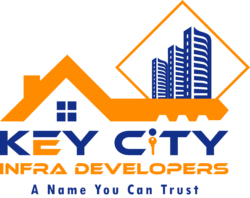Certainly! Here are 10 quick tips about real estate that you can use for a blog post on your website:
Understand Your Financial Situation: Before diving into real estate transactions, assess your financial health. Determine your budget, consider mortgage options, and factor in additional costs such as taxes, insurance, and maintenance. Being financially prepared sets a solid foundation for successful real estate ventures.
Research Local Market Trends: Stay informed about local real estate market trends, including property prices, inventory levels, and average days on market. Understanding market dynamics helps you make informed decisions whether you’re buying, selling, or investing in real estate.
Work with a Knowledgeable Real Estate Agent: A reputable real estate agent brings expertise, market insights, and negotiation skills to the table. Choose an agent who understands your goals, communicates effectively, and has a track record of success in your target area. Their guidance can streamline the process and help you achieve optimal outcomes.
Get Pre-Approved for a Mortgage: If you’re planning to buy a property, get pre-approved for a mortgage before starting your search. Pre-approval shows sellers that you’re a serious buyer and can strengthen your negotiating position. Compare mortgage offers to find the best terms and interest rates suited to your financial situation.
Consider Long-Term Investment Potential: Real estate can be a valuable long-term investment. Evaluate properties based on their potential for appreciation, rental income, or future development. Look for neighborhoods with strong growth prospects, amenities, and infrastructure improvements that can enhance property value over time.

Inspect Properties Thoroughly: Whether you’re buying or investing in real estate, conduct thorough property inspections. Hire qualified inspectors to assess the condition of the property, identify potential issues, and estimate repair costs. Understanding the property’s condition helps you make informed decisions and avoid unexpected expenses down the road.
Negotiate Wisely: Negotiation is a key skill in real estate transactions. Understand market conditions, comparable sales, and property specifics to negotiate effectively. Be clear about your priorities and willing to compromise when necessary to reach mutually beneficial agreements with buyers, sellers, or tenants.
Review Contract Terms Carefully: Real estate transactions involve legal contracts that outline rights, responsibilities, and obligations. Review contract terms, contingencies, and timelines carefully with the guidance of a real estate attorney if needed. Ensure all parties understand and agree to the terms before signing to avoid misunderstandings or legal complications.
Plan for Property Maintenance and Upkeep: Owning or managing real estate requires ongoing maintenance and upkeep. Budget for routine repairs, landscaping, and property improvements to preserve asset value and ensure tenant satisfaction. Regular maintenance enhances property appeal and minimizes costly repairs in the future.
Stay Flexible and Patient: Real estate transactions can be complex and unpredictable. Stay flexible in your approach and patient throughout the process. Be prepared to adapt to market changes, negotiate counteroffers, or explore alternative properties if needed. Maintaining a positive attitude and focusing on long-term goals can lead to successful outcomes in real estate endeavors.





